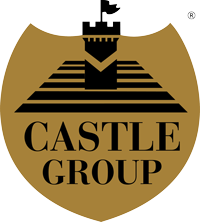The Five Best Practices for Effective Budget Preparedness
July 23, 2025

As community associations grow and evolve, so does the complexity of managing their finances. A well-prepared budget not only reflects the financial health of the association but also lays the foundation for efficient operations, ongoing maintenance, and resident satisfaction.
At Castle Group, we believe that thriving communities are built on strategic, forward-thinking financial planning. Whether you’re crafting your first budget or looking to refine your current process, these five best practices can help you navigate the budgeting season with clarity and confidence.
- Start Early and Establish a Clear Timeline
Budgeting isn’t a last-minute task—it’s a proactive, year-round initiative. Begin discussions at least three to six months before your fiscal year ends. Develop a timeline with key milestones for:
- Gathering vendor proposals
- Reviewing historical financials
- Meeting with committees and management
- Presenting drafts to the board
- Sharing the final budget with residents
Starting early gives your team the flexibility to make thoughtful adjustments and avoid rushed decisions, leading to a more accurate and stress-free process.
- Let Historical Data Guide Your Forecast
The past is one of your most valuable planning tools. Analyze financial data from the past two to three years to identify:
- Recurring and seasonal expenses
- Areas of overspending or savings
- Trends in utility or service costs
This insight allows for more precise forecasting and helps build a budget that aligns both short-term operations and long-term goals.
- Engage Vendors and Service Providers in Advance
Since vendor contracts often account for a significant portion of your expenses, early outreach is essential. Contact landscapers, security providers, maintenance teams, and other partners in advance to secure updated pricing.
Proactive vendor engagement helps:
- Lock in favorable rates
- Understand cost drivers like labor or material increases
- Review contract terms or consider alternatives
Strong vendor relationships and timely negotiations can translate into meaningful savings and better service quality.
- Plan for Reserves and Capital Projects
Unexpected repairs or capital expenses can put a strain on any community. That’s why funding reserves and planning for capital improvements is not just wise—it’s necessary. Use your reserve study as a roadmap and ensure contributions are adequate to meet both future needs and statutory requirements.
Best practices include:
- Adhering to a fully funded reserve schedule
- Updating reserve studies every 3–5 years
- Accounting for inflation and market shifts
This approach demonstrates fiscal responsibility and reinforces your community’s long-term financial stability.
- Communicate with Transparency
Once the budget is finalized, clear and open communication with residents is crucial. Use meetings, newsletters, and online platforms to explain:
- How the budget supports community priorities
- The reasons behind any increases in dues
- Upcoming improvements and projects
Transparent communication fosters trust, encourages resident engagement, and strengthens the connection between leadership and the broader community.
At Castle Group, we see budget preparedness as more than just balancing numbers—it’s about protecting property values, delivering excellent service, and advancing your community’s vision. By embracing these best practices, your association can approach the fiscal year with assurance and unity.
To learn more about how Castle Group can support your community this budget season, request a proposal at www.castlegroup.com/request-a-propoal.
Tags:

